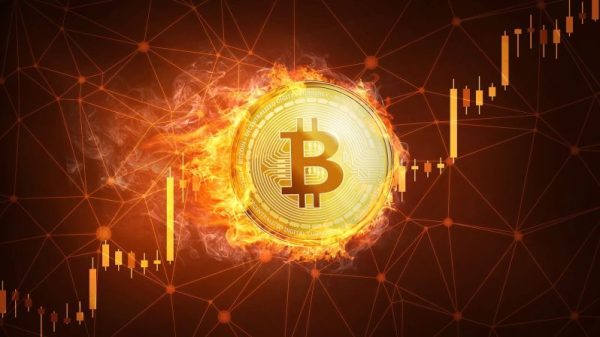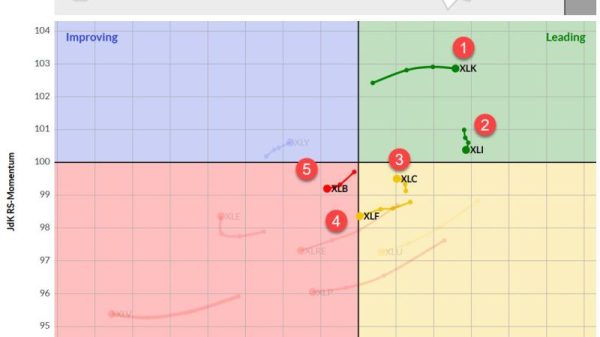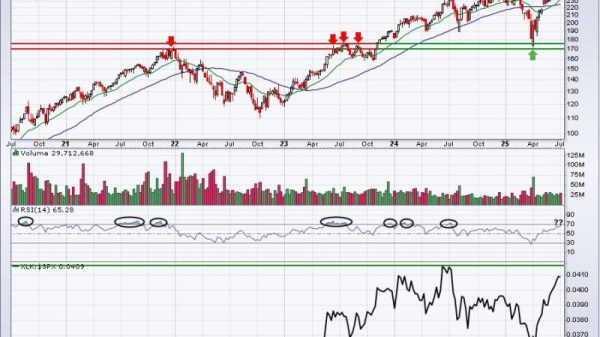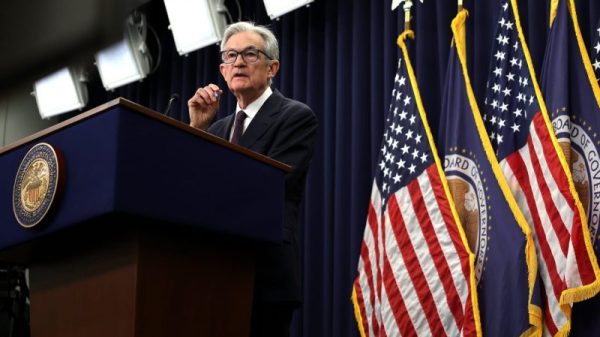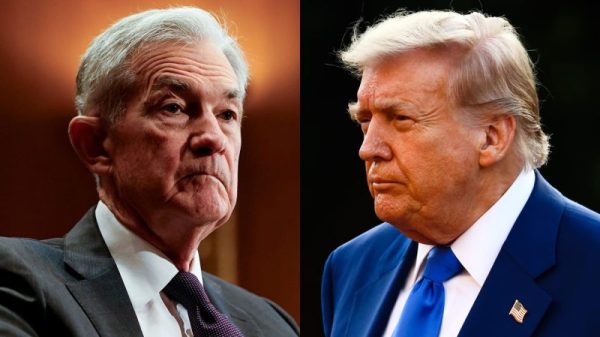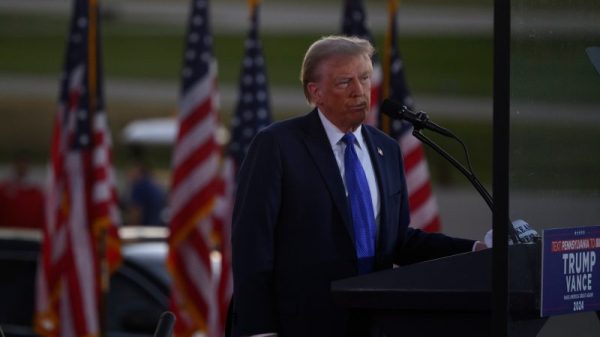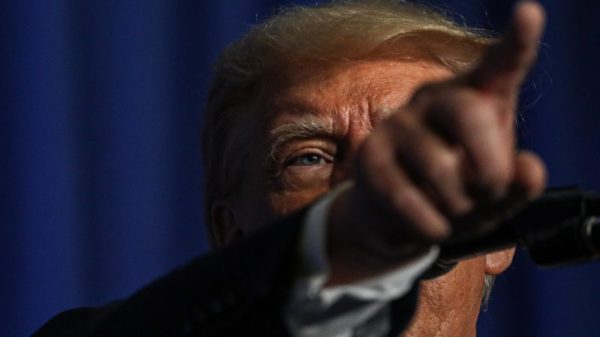House Speaker Kevin McCarthy (R-Calif.) said the reasons he decided to open an impeachment inquiry into President Biden were “allegations” involving Hunter Biden’s business dealings that suggest “a culture of corruption” by the Biden family. He provided nothing close to a smoking gun involving the president to back up that claim.
His statement, solemnly delivered this past week as if it were a moment of high consequence for the republic, recalled a comment attributed to Rudy Giuliani, who after the 2020 election incessantly made wild, false claims about election fraud in his representation of then-President Donald Trump.
“We’ve got lots of theories. We just don’t have the evidence,” Giuliani said, according to then-Arizona House Speaker Rusty Bowers (R), who testified before the House select committee investigating the Jan. 6, 2021, attack on the Capitol.
Impeachment proceedings were not meant to start with theories. In a world turned upside down, that’s what McCarthy has done. The real reason for McCarthy’s decision to launch the inquiry was apparent to all. It was a bow to hard-right members of his conference demanding he do this at a time when the speaker is caught up in internal brawling with those members over funding the government by the Sept. 30 deadline.
Some of those members have threatened to try to remove McCarthy as speaker; his hold on the gavel has been tenuous since he barely secured it back in January on the 15th ballot. In pungent language, he told them at a closed-door meeting to bring it on. This is the climate that has led to the invocation of one of the most serious and, until recently, rarely used mechanisms in the Constitution for disciplining a president.
Divisions among House Republicans over spending could lead eventually to a government shutdown that risks political damage to the Republican Party heading into the 2024 elections. The impeachment inquiry, if it gets out of hand or sputters inconclusively, could do the same or worse, especially for the 18 House Republicans who sit in districts Biden won in 2020. Given their narrow majority, House Republicans can ill afford to make things difficult for their most vulnerable members.
By definition, the impeachment process is a political exercise with legal aspects. With this latest turn, it is now almost wholly political, a debasement of what was intended to be a vehicle to remove a president for malfeasance even in the absence of criminal charges. As Sen. Mitt Romney (R-Utah) said in an interview this past week: “This is not an impeachment. This is an inquiry, and I have heard no allegations that rise to the high-crimes-and-misdemeanors standard of the Constitution.”
The Wall Street Journal’s editorial board, a voice for traditional rather than Trumpian conservatism and one that has been persistently critical of Biden with regard to his son’s business dealings, offered a warning to House Republicans.
“Congress is in danger of turning the serious sanction of impeachment into the new censure — a statement of rebuke rather than a threat of removal,” the editorial read. “Republicans will need evidence of genuine corruption by Mr. Biden if they want to convince a majority of Americans that he should be removed from office with an election coming in 2024.”
The same editorial was critical of the first of Trump’s two impeachments, saying the Ukraine inquiry was based on “flimsy evidence to appease progressives.” The outcome of that impeachment was a near-party-line vote in the Senate to acquit Trump. (Romney was the only Republican to vote with Democrats to convict.)
Yet that impeachment began with more than McCarthy has at this moment. There was confirmation of a phone call between the president and Ukrainian President Volodymyr Zelensky in which Trump, who at the time was withholding aid to that country, pressed Zelensky to dig up dirt on Biden that could be used against the Democrat in the 2020 election.
Other impeachments also were launched with more substance than McCarthy has now. The Watergate scandal, a vast conspiracy of lawlessness by many, brought Richard M. Nixon to the brink of impeachment, which he avoided only by resigning the presidency. Bill Clinton was impeached for lying in a deposition about an affair with a White House intern. Democrats, while not defending Clinton’s behavior, thought impeachment was not the proper recourse, and the proceedings ended in party-line votes for acquittal. Trump’s second impeachment came in the wake of the Jan. 6 attack and his role in inciting the mob. Romney and six other Republicans joined the Democrats in the Senate to convict, but still that fell short of the threshold needed.
McCarthy had said earlier that he would not open an impeachment inquiry without a vote by the House. He went back on his word, instead issuing a unilateral order to start the proceedings — an apparent acknowledgment that he lacked the votes to do so on the House floor and an indication that this came because of political pressure rather than a preponderance of evidence.
As pursued by House Republicans, impeachment is now more score-settling than serious undertaking, a tit-for-tat in retaliation for the four criminal indictments of Trump this year and claims of a weaponized Justice Department. This could spiral into a steady stream of impeachments in future years as control of the White House and Congress changes hands.
House committees have been investigating Hunter Biden and others in the Biden family for a long time. Why this now? McCarthy said that, by opening an impeachment inquiry, investigators would have better tools to gain access to information that could help to prove what Republicans hope to prove, that the president personally profited from his son’s contracts with foreign entities.
Yet, as The Washington Post’s Jacqueline Alemany reported, it is not clear what those additional tools are or why the label of “impeachment inquiry” will suddenly reveal hoped-for evidence that months of investigative work by these committees has yet to produce. Many Republicans see enough smoke in what is known so far to believe there must be fire regarding the president. As yet, that’s not the case.
Hunter Biden also has been under investigation for years by the Justice Department. He was indicted Thursday on gun charges after a plea agreement with prosecutors broke down during the summer. The federal investigation, led by special counsel David Weiss, could also result in an indictment of the president’s son on tax charges. Nothing made public from the Justice Department’s probe has shown that the president did anything illegal.
So far it’s known that Biden, when he was vice president, was on phone calls with his son and his son’s business associates, that he showed up at two dinners with similar attendees. Devon Archer, a business partner of Hunter’s, has testified before Congress that all of this helped to promote the family brand, but he also said Biden did not discuss business in any of those settings. Republicans also are suspicious because Biden uses several pseudonyms in emails.
Archer’s testimony shows that Hunter Biden was trading on his father’s position and suggesting to potential clients that he had influence with his father beyond what he had. Biden’s judgment in dealing even in passing with his son’s business associates, a son who was in turn dealing with drug addiction at the time, can be called into question. But Republicans have not delivered on their ultimate claim, after months of trying, that Biden profited financially or that U.S. policy was changed as a result.
Trump is facing 91 felony counts in four criminal indictments. He wants nothing more than to muddy the waters in the minds of voters, hoping to persuade people that he is no worse than Biden. There is no equivalence between the charges against Trump (and the powerful evidence in the indictments) and the claims about Biden, though anyone who watches Fox News might believe otherwise.
Some Republicans in the House are nervous about what McCarthy has begun. A few have been outspoken, none perhaps more than Rep. Ken Buck (Colo.), who wrote in a Post op-ed that his colleagues pursuing impeachment “are relying on an imagined history” when the process “should have a foundation of rock-solid facts.”
Now that the inquiry is launched, it could take on a life of its own, in which case it might be difficult to stop before articles of impeachment are introduced. Or the inquiry could run for months without any conclusion, never rising to a formal impeachment proceeding but without anyone calling a halt to it.
McCarthy has claimed the impeachment inquiry is a “natural step” after the work that has been done, but there is nothing natural about this one. It is a political step, one taken under the speaker’s duress. The burden of proof remains with McCarthy and his Republican colleagues.







